A quick look-up for injected-class-name in the Standard yields:
§11.1 [class.access.spec]
5/ [ Note: In a derived class, the lookup of a base class name will find the injected-class-name instead of the name of the base class in the scope in which it was declared. The injected-class-name might be less accessible than the name of the base class in the scope in which it was declared. —end note ]
[ Example:
class A { };
class B : private A { };
class C : public B {
A *p; // error: injected-class-name A is inaccessible
::A *q; // OK
};
—end example ]
I believe this is eerily close to your example ;)
Note clang 3.0's stack, which is slightly more explicit:
$ clang++ -fsyntax-only test.cpp
test.cpp:6:5: error: 'B' is a private member of 'B'
B* foo () { return 0; } // error: ‘struct B B::B’ is inaccessible !
^
test.cpp:2:12: note: constrained by private inheritance here
struct D : private B {
^~~~~~~~~
test.cpp:1:8: note: member is declared here
struct B {};
^
1 error generated.
Here we see that B is accessed through D, instead of directly picked up in the global namespace.
